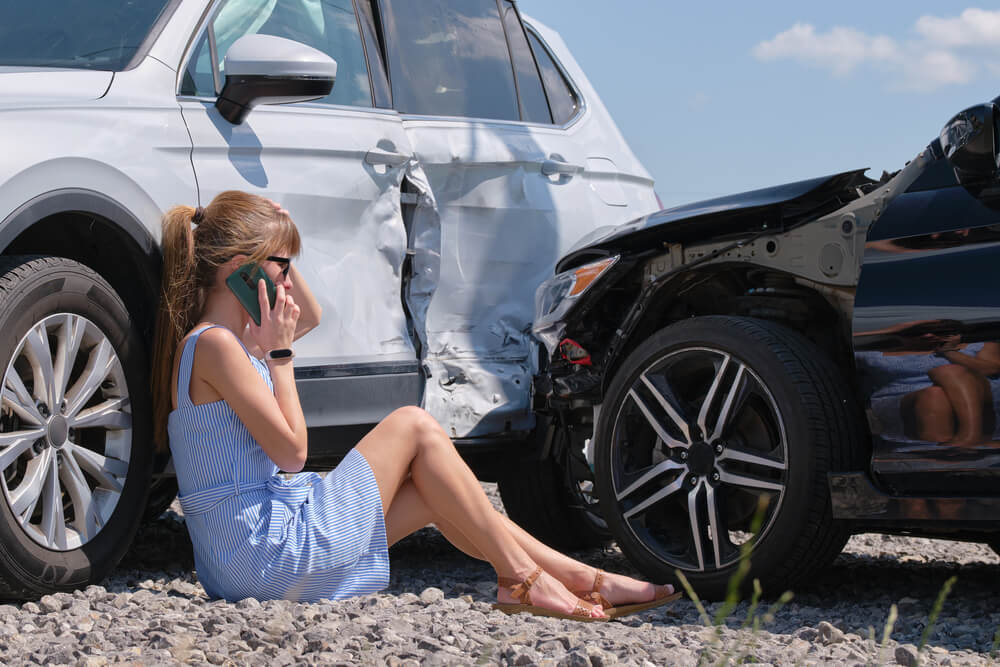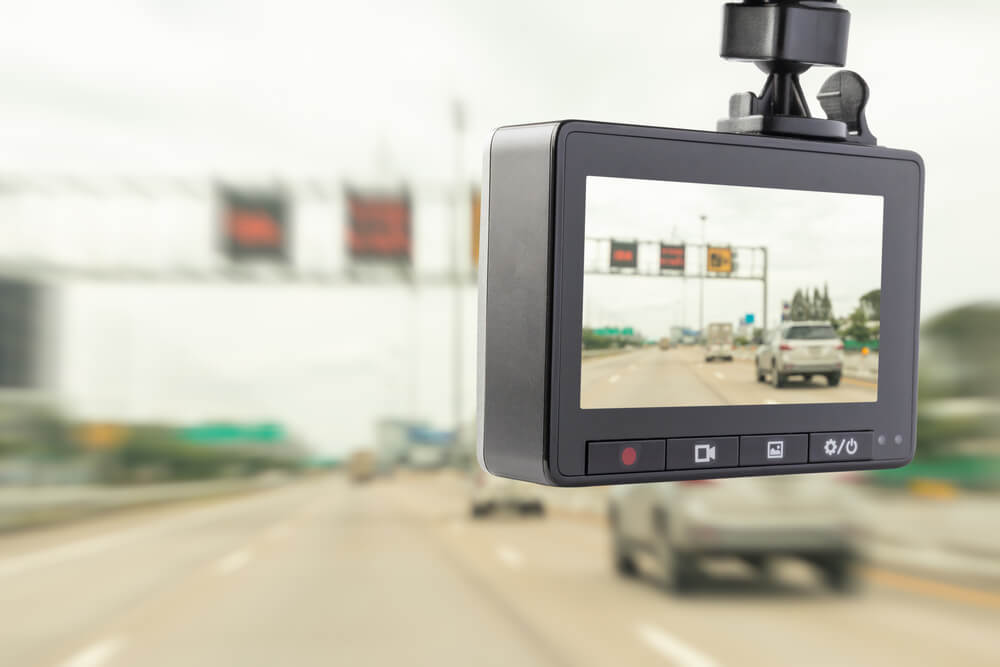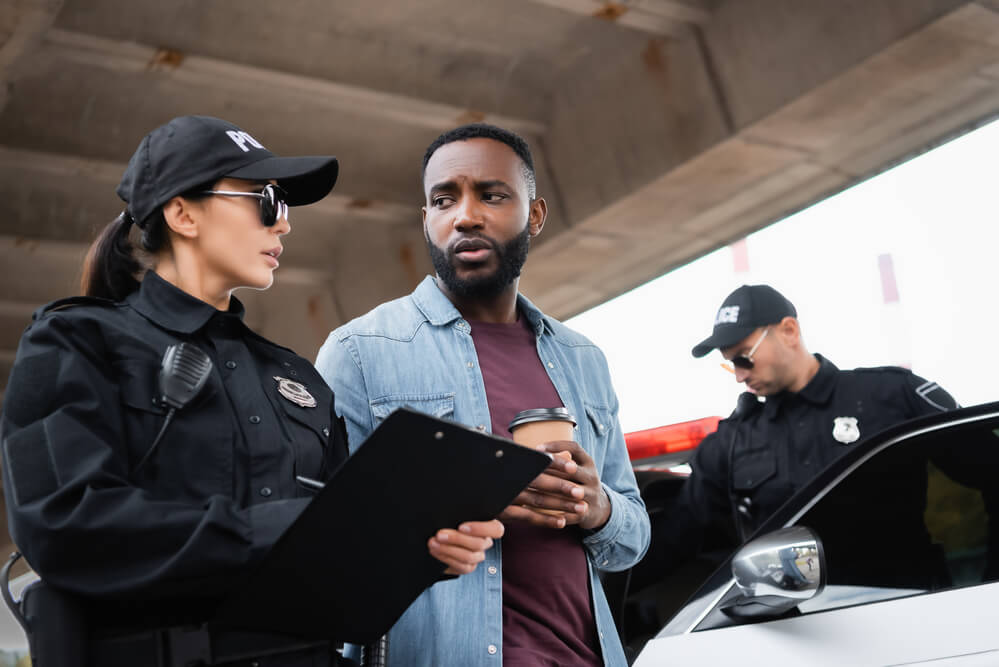After a car accident, it is normal to wonder what to do next. A motor vehicle accident can be a personal catastrophe, resulting in mental, physical and financial devastation. While being uncertain is typical in stressful situations, taking action after an accident can protect your ability to file a compensation claim. Part of taking action includes learning how to gather evidence.
Learning How To Gather Evidence

Arizona has a fault-based system for liability following a crash. This means that if another driver is at fault for the accident, you have the right to file an insurance claim or lawsuit to recover compensation, including:
- Medical injury costs
- Loss of income
- Pain and suffering
You have a two-year limit to file a civil case for a personal injury, so the quicker you collect evidence, the more likely you will succeed in filing a worthwhile claim.
Your Testimony May Not Be Enough
You are a biased party in your injury lawsuit. In a case where fault is questionable, both drivers might have different stories. You might have complete certainty about what happened, but you cannot expect the court to take your word for it. Instead, back up your testimony with hard evidence.
Insurance Companies May Fight You
In Arizona, all drivers are required to carry liability coverage before they can register their vehicles. After an accident, you do have to report it to your insurance company. Likewise, you will probably receive a call from the other driver’s insurer.
Understanding that insurance companies do not always fight for you is part of learning how to gather evidence. They make their money from premiums. To make a profit, they must pay out less than the premiums they earn throughout the year. Unfortunately, this means your insurer might try to poke holes in your claim or fish for an admission of fault.
Your Medical Bills and Vehicle Damages Could Financially Devastate You

A lost claim could result in you paying many medical and property bills out-of-pocket. On average, vehicular damage costs people about $4,700. In car accidents with a disabling injury, you could be looking at $101,000 in medical costs.
Arizona law allows you to seek compensation for lost wages too. If your car accident resulted in a temporary or permanent disability, calculate the wages you lost throughout the healing process. Additionally, determine the wages that you will lose in the future or the money you have to spend on vocational training to change careers. Being forced to pay extensive costs after a motor vehicle accident can add insult to injury for victims.
Identifying Types of Car Accident Evidence
To learn how to gather evidence, you must know what to collect. Different forms of proof offer different values to your case. For example, a video weighs more than witness testimony.
Photographs
Photographic and video evidence are difficult to argue with. Juries will listen to a story, but images sway them. Think about how people react to pictures in other settings. On social media, people can edit a photo or attach a story to an image that people would typically question. Yet, the image makes people more likely to believe the story.
In the case of a car accident, your pictures can capture exactly what happened. Describing a catastrophic accident doesn’t compare to displaying the wreckage on film. The court can follow your story better when they have images to supplement it.
In addition, you can edit a video to show the accident linearly. An example would be to show the street on a typical day, followed by footage of the wreckage and the aftermath at the hospital. Overlay the video with your voice to explain what you want people to see.
Witness Statements
Learn how to gather evidence from people unconnected to you and the other driver. Strangers who witnessed the accident do not have a stake in your claim and come across as unbiased. Their statements carry more weight than yours or the other people involved. Keep in mind that written and recorded testimonies are both acceptable.
Surveillance Evidence

Arizona businesses have a right to set up security cameras on their property. Homeowners can also install cameras where people do not have a reasonable expectation of privacy. Often, businesses have cameras that face the street and parking lots. It is possible that someone’s camera recorded the accident as it happened.
Other cameras that may have captured your accident include:
- Dashcam video
- Red light cameras
- Ring doorbell cameras
When determining how to gather evidence, understand that the most vital proof shows the accident and the seconds leading up to it.
Medical Records
Medical records prove your claims of injury. Fender benders that don’t result in medical injuries or vehicle damage do not qualify for a personal injury claim. Fault doesn’t matter when there isn’t any harm, except in the case of possible traffic citations.
To back up your damages claim, you need to provide medical records. Records include diagnoses from your doctors, medical treatment, rehabilitation and predictions for your recovery. Supplying medical records from before your accident could also prove that you are not claiming injuries from your past.
How To Gather Evidence After an Accident
The next step to proving your claim is getting your hands on all the evidence. Gathering evidence should begin directly following the accident and may continue throughout the claim. Here are six steps you can take.
1. Contact Local Law Enforcement

Call law enforcement right after you’re involved in an accident. Arizona police will create a report that contains driver, witness and passenger statements. They must also include key details about the vehicles and the people involved in the accident. Officer opinion is also included in the overall report. If they have a theory on how the accident happened, they might include a diagram that shows the point of collision, path and location. The report is a good example of how to gather evidence.
To obtain a copy of the police report, you request it from the law enforcement officer. You should receive a receipt with the report’s identification number after the crash. If you don’t get an identification number, you can find the police report later by providing the accident’s location, date and time. If your insurance company requested a police report as part of your claim, you can also ask them for a copy.
2. Take Pictures of the Accident
If you can physically collect evidence after an accident, start by taking photo evidence. Take as many pictures as you can of the scene. Your photos should include various angles of both vehicles and the surrounding scene. Capture the street signs and landmarks to show the location and include any traffic signals or stop signs. You can also use your camera to create a log of the weather or any hazardous conditions on the road that day.
You should also take plenty of pictures of any injuries you sustained. Take photos immediately following the accident and again after treatment at the hospital.
3. Speak With Your Doctors and Medical Professionals
To know how to gather evidence from medical professionals, you must seek medical attention. Never decline an invitation to go to the hospital. It is possible to sustain injuries that do not present with immediate symptoms, including traumatic brain and internal injuries.
A physician can analyze your condition and determine if your injuries were sustained due to a motor vehicle accident. Additionally, your doctor can explain his or her prediction of your path to recovery. Ask for a treatment plan that explains the need for any future medication, surgery or rehabilitation. Create a folder that houses all of your medical records, including diagnoses, treatments and medical bills.
4. Give Your Lawyer Permission to Investigate
Hiring a lawyer should take some burden off you. Phoenix, Arizona accident attorneys have extensive experience proving car accident claims. They know how to gather evidence correctly. If your representation has a good track record, trust him or her to determine what kinds of evidence you need and how to display it. Some lawyers might revisit the scene to take pictures or talk with police about the accident.
5. Seek Eyewitnesses
If you can, talk to eyewitnesses at the scene. Ask for names, email addresses and phone numbers so you can keep in touch and gather testimony later. The sooner you speak to the witnesses, the fresher the memory is. When gathering witness testimony, check to see if multiple stories add up. For instance, if your accident involves a person who ran a red light, did all the witnesses see it happen? If not, is there a reason why someone missed it?
If you did not collect witness information at the scene, check the police report. Police know how to gather evidence, and you or your lawyer can use the report to find contact information for the witnesses.
6. Talk With Experts
An expert witness is a person who has specific knowledge or experience that could help prove your claim. Expert witnesses may have engineering, medical or accident reconstruction experience. They can explain the details and complexities of the case that ordinary people might not understand without their help.
For example, an accident reconstructionist can reveal the speed and direction the drivers need to be going for the accident to occur. They could explain who needed to enter the intersection first, who missed the stoplight and whether someone hit the brakes. Your lawyer can help you find a relevant expert.
What Not To Do After an Accident
Learning how to gather evidence is the first step to building your case, but not the last. While collecting proof, there are some things you should refrain from doing. The following actions can seriously impact your case. Chat with your lawyer for more advice.
Talk With Other Insurance Companies
The at-fault driver’s insurance company does not represent your best interests. While you have an obligation to report the accident to your insurer, you don’t have to call the other driver’s insurer. Only speak to the defendant’s insurance company after you have talked to a lawyer or while your lawyer is present. Some lawyers will speak to the insurer in your stead to ensure you don’t say anything that could be viewed as incriminating. In learning how to gather evidence, you also have to learn not to provide excess information.
Insurance adjusters dig for information by asking benign questions. For example, a simple “how are you?” might be a way for them to question the validity of your injury claim. Insurance companies also tend to make low offers before you know the true worth of your case.
Apologize to Another Driver
Instinct might tell you to apologize directly following the accident. Often, apologies are an expression of sympathy rather than an admission of guilt. To express kindness at the scene of an accident, ask the other party if they need help. You can express mutual disdain for what happened, but do not apologize or say it isn’t the other person’s fault to ease their minds.
Lose Your Temper

Stay calm. While tempers might flare, you have to rise above your anger. People might try to question the validity of your claim or point the finger of blame at you. Keep your cool to avoid acting inappropriately.
If the court views you as unstable or quick-to-anger, it could harm your case. Vent your frustrations with the people close to you, but stay away from social media and other public forums. What you say publically can be used against you.
Learn How To Gather Evidence To Win Your Fight
If you or your loved one have suffered injuries due to a motor vehicle accident, the Phoenix injury lawyers at Sargon Law Group are dedicated to recovering the compensation you are owed. Once you know how to gather evidence, you can be an active participant in your case. At Sargon Law Group, we have the resources and knowledge necessary to build a solid personal injury claim on behalf of our clients. Contact us today to schedule your consultation.
